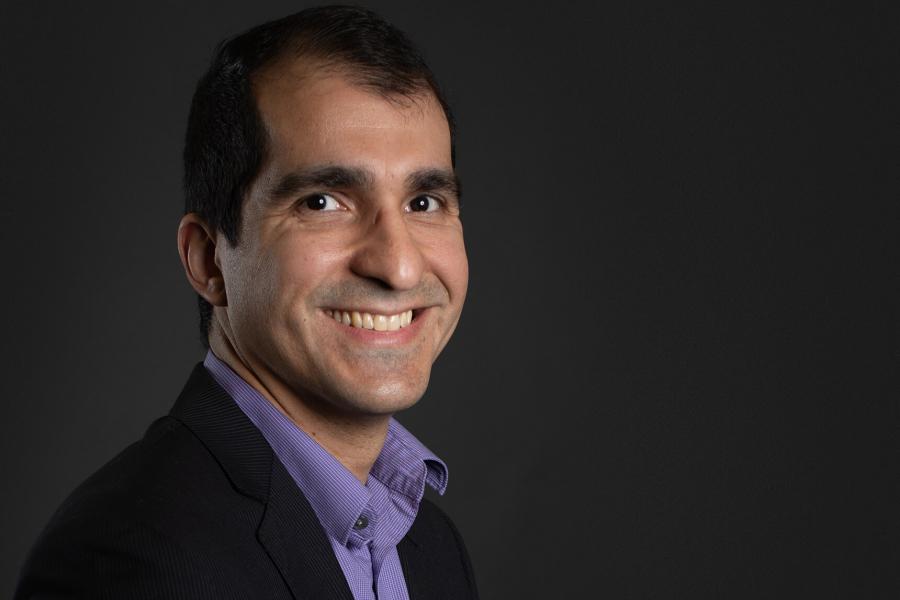
Marcos Cordeiro, 2022 Falconer Rh Award recipient
Meet Marcos Cordeiro, 2022 Rh Award Winner in the Interdisciplinary category
Marcos Cordeiro is an assistant professor in the animal science department who uses digital tools to improve the productivity and sustainability of agricultural systems.
Cordeiro is the 2022 recipient of the Terry G. Falconer Memorial Rh Institute Foundation Emerging Researcher Award in the Interdisciplinary category, in recognition of his leadership in digital agriculture. UM Today caught up with Cordeiro to learn more about him and the research he is undertaking.
Tell us a bit about yourself and your research.
I use modern digital tools like computer models to assess and optimize the productivity and sustainability of crop and livestock production systems. These tools allow us to assess agricultural systems across space and time, optimizing the use of resources and addressing research questions that would be cost-prohibitive using traditional monitoring strategies.
Why is this research important?
Producing food today is very different than a few decades ago. Today, farmers have to reconcile an increasing demand for quality food with increasing competition for natural resources and environmental aspects like carbon sequestration and biodiversity. Consumers are also much more interested in how food is produced. My research program sits at the interface of agronomic and environmental sciences, using digital tools to balance these competing demands.
What does the Rh Award mean to you?
I’m very honoured to be the recipient of the Rh Award. This is a very prestigious award, and we academics don’t take news like that for granted. That said, the main message from this award is that we are on the right track. My goal in research is to align the work I do with the priorities of the Canadian agricultural sector and consumers. The Rh Award is very positive feedback that our work is making an impact.
What do you hope to achieve in the future?
Agriculture is changing very fast. Management decisions are and will increasingly become data driven. My goal as a researcher is to create tools that will facilitate those decisions for farmers while informing policymakers and commodity groups. Another related goal is to prepare higher education students to face this new workplace in which skills in data and digital tools are essential.
What about you would people find surprising?
In teaching and research, I communicate mostly through words. Whenever I can, I try developing other communication strategies. Instrumental music is something that helps me with that. It’s amazing where a well-crafted and executed melody can take you. Sean Angus Watson, an instrumental guitar player, is a good contemporary example.
Any advice for early career researchers and students?
Follow your academic passion and try to understand its applications in a broader context while incorporating future trends. This is not simple and will require you to develop your critical thinking and creative skills. Despite being a challenging process, it’s very rewarding and fun.
Research at the University of Manitoba is partially supported by funding from the Government of Canada Research Support Fund.






